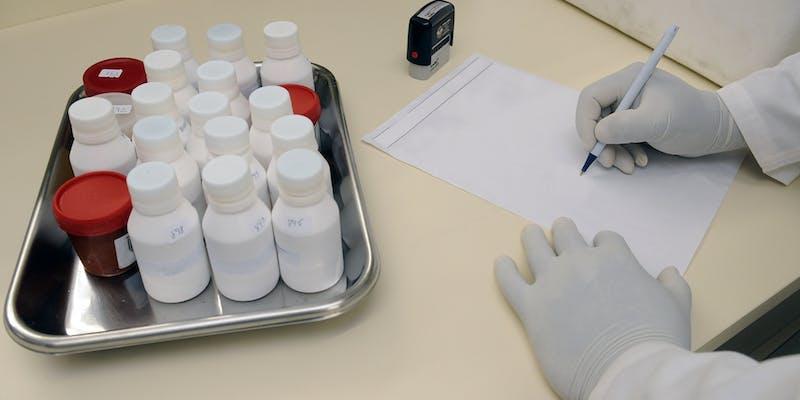Papain is a super enzyme in the fresh papaya fruit's white fluid (latex). Its nature as a protease entails the degradation of proteins. Papain contains compounds that may aid in wound healing and infection prevention. Although papain is utilized to treat various conditions, including dental caries, shingles, parasite infections, jellyfish injuries, and wound healing, no solid scientific evidence supports these claims. Papain should not be confused with papaya or American pawpaw. These are not identical. Additionally, papain should not be confused with other proteolytic enzymes.
The papaya produce is Mexican. It grows naturally in Florida and the Caribbean. At over 5 million kilograms, India made the most papaya in 2013, according to the FAO. Papain can help children with gastrointestinal issues and celiac disease. Papaya and papain supplements should be given to cystic fibrosis children with caution. Before taking papain supplements, consult your doctor.
Health Benefits Of Papain For Kids

Enhances Digestion
Papain supplements relieve constipation, indigestion, and gastrointestinal dysfunction. A few small studies show that papaya enzyme aids protein digestion, especially in meat. Papain activation doesn't require acidity. Papain supplements may help everyone digest and absorb some meats, regardless of stomach acid.
Reduces Inflammation
Papain may relieve arthritis, asthma, and other inflammatory diseases. Papain and trypsin have been shown to dissolve detrimental immune complexes and prevent their formation. This suggests papain may boost lymphatic drainage and immune function. These findings suggest papain may prevent inflammation. Studies suggest more clinical research is needed to understand papaya extracts and their immunomodulatory and anti-inflammatory phytochemicals fully.
Injury Recovery
Lesions and ulcers can be treated at home with papain. Lesion debris expulsion by papain may speed healing. Test a small area before treating skin conditions or wounds with topical lotion. Use regularly to relieve psoriasis. Since some people have papaya enzyme allergies, Papain salves or ointments can repair any lesion quickly and painlessly without reaction.
Relieves Muscle Pain
Since muscle function and health depend on a substantial quantity of proteins, proteases such as papain can aid in this. In addition to promoting efficient reabsorption of dietary proteins into muscles, papaya enzymes assist in the reduction of pain and inflammation in tired or injured muscles following exercise. When consumed before engaging in substantial physical activity, papain aids recovery following exercise and reduces discomfort.
Cures Sore Throat
A sore throat can result in extensive distress due to the pain and swelling it causes. Whatever hinders an individual's ability to swallow and consume without experiencing discomfort is detrimental to their health. Papain can assist in reducing inflammation, the leading cause of the pain and swelling you are experiencing in your pharynx. Papain-infused throat lozenges are more productive than those lacking this compound in alleviating symptoms.
Battles Infections
Papain is a super enzyme employed in unorthodox wound treatments due to its antiviral and antifungal properties. By eliminating the protein coating that fungi and viruses employ as a defense mechanism, papain functions in the fight against infections. Their capacity to procreate, spread, and infect others is consequently diminished.
Anti-Tumor Effects
According to an animal study, the papaya enzymes vaccine extended the mean lifespan of malignant mice compared to the unvaccinated counterparts. Mice immunized with papain exhibited a reduction in the rate at which they developed, invaded, and metastasized malignant tumors.
Efficacy For Shingles
The anti-inflammatory properties of papain may facilitate infections such as shingles. Papain exhibits comparable efficacy to leading pharmaceuticals in mitigating signs and symptoms, such as neuralgia and pain and the progression of skin lesions. Similar efficacy was observed between the super enzyme preparation and the antiviral medication acyclovir, which treats herpes virus infections. After 14 days of treatment, the papaya enzyme combination effectively alleviated the discomfort associated with herpes zoster in several small-scale studies.
Risks and Side Effects
It is deemed "possibly safe" to ingest papain orally in adequate quantities and safe to consume in foods containing normal levels. Papain adverse effects include stomach discomfort, throat irritation, and gastritis, according to research published by the Mayo Clinic College of Medicine. Papain is toxic when consumed in excessive quantities.
Atopic application of the papaya enzyme in ointments or moisturizers may induce allergic reactions. An allergic or sensitive epidermis may develop blisters, redness, or irritation upon application of papain. According to some hypotheses, pupils who are allergic to figs and kiwis may also be allergic to papain. Papain should be applied topically or ingested with utmost caution by individuals whose allergic reactions are triggered by exposure to these fruits.
Due to papain's potential to lower blood pressure, individuals with diabetes or hypoglycemia should exercise prudence when using it and consult a healthcare professional for guidance. It is contraindicated for individuals who are on blood thinners to consume or utilize the enzyme, as doing so could potentially increase their susceptibility to hemorrhaging. Even more importantly, abstaining from its use at least two weeks before a scheduled operation is crucial.
Sources and Dosage Recommendations

Papain comes in capsules, tablets, powders, gummies, lotions, and ointments. Papain protocols are unstandardized. Safety ranges from 25 to 100 milligrams daily. A doctor should determine papaya enzymes dosage before use.
Avoid side effects by not taking more than 400 milligrams of papain daily unless your doctor tells you otherwise. Although there is some evidence that taking an enzyme at 1,500 mg orally daily may be beneficial, consult your doctor first. Papain-containing creams and ointments can treat red, inflamed, or painful areas. Before applying the topical to a large surface area, perform a patch test to rule out papaya enzyme allergies.
Can I Eat Papayas Daily?
Daily papaya consumption is acceptable. The World Health Organization recommends five daily servings of fruits and vegetables to promote overall health. Papaya can effectively assist you in accomplishing that objective.
Nonetheless, a diverse assortment of fruits is optimal for consumption, as each imparts unique nutrients and advantages. Analogously, the 12 g of natural sugar found in one small papaya is relatively moderate compared to other fruits. Although consuming natural sugars does not pose any physical damage, it is advisable to maintain a balanced intake by selecting a variety of fruits with varying sugar content. Apples, grapefruits, and berries are all foods that contain less sugar. Simply put, consuming papaya is not the extent of what constitutes a nutritious diet. Included in your diet should be:
- Healthful fats
- Beans, nuts, and seeds provide low-fat protein.
- Fresh Produce
- Different whole grains







